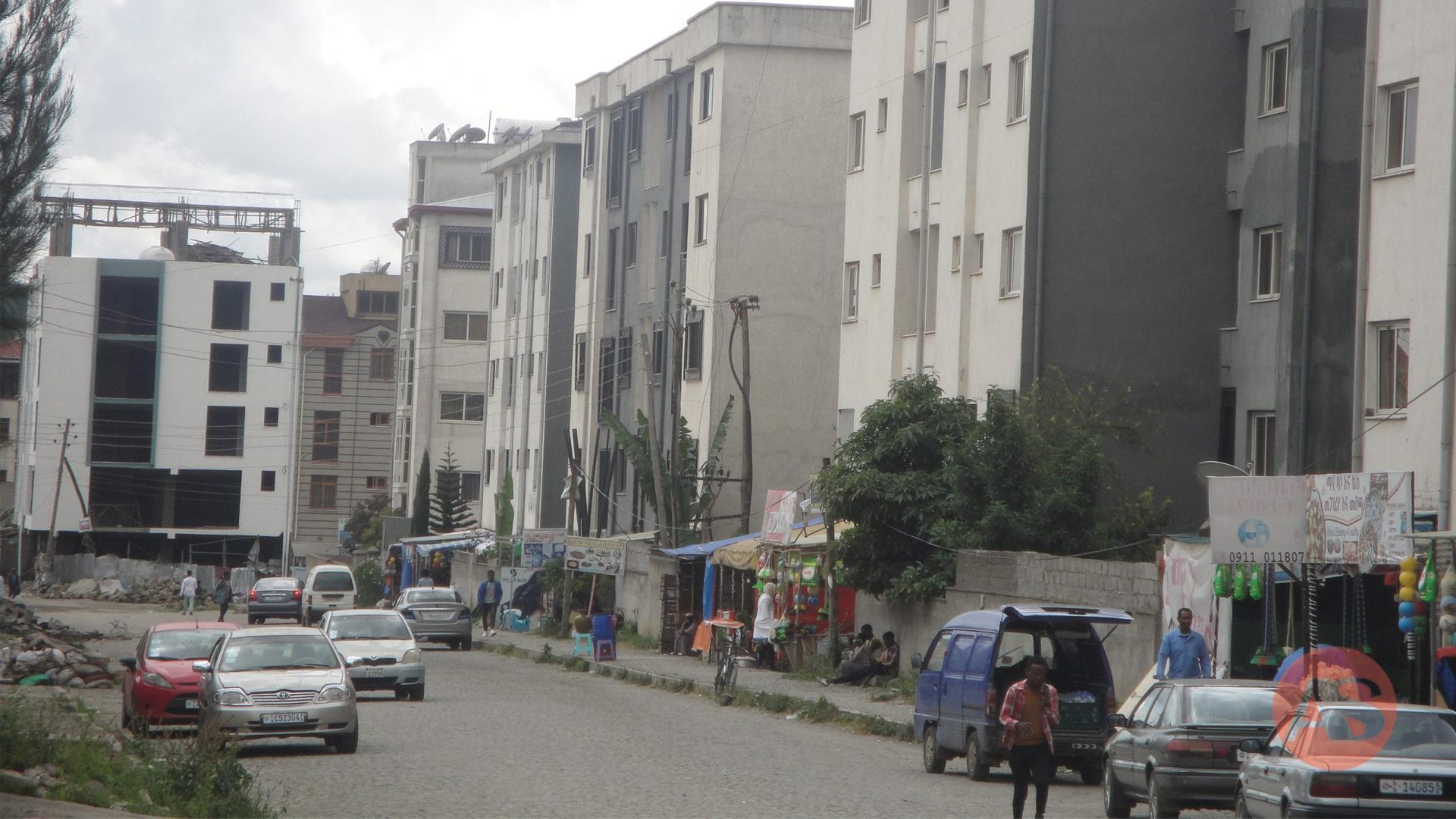
By Abdi Biyenssa
Africa-Press – Ethiopia. Addis Abeba– Ethiopia’s real estate sector has experienced substantial growth over the past decade, fueled by urban expansion and rising housing demand in cities such as Addis Abeba. Developers have responded with ambitious residential projects aimed at middle- and high-income buyers, as well as diaspora returnees.
However, this rapid growth has not kept pace with the widening demand-supply gap, particularly impacting low- and middle-income residents. Annual housing demand in Ethiopia is projected to reach 486,000 units by 2025, but actual supply is estimated at only around 165,000 units annually. With most developers targeting higher-income buyers, many urban families are left struggling to secure adequate housing.
The sector has also faced significant vulnerabilities over the years. Without a cohesive regulatory framework, issues such as disputes over undelivered homes, stalled projects, and unmet promises have become common, eroding trust between developers and clients. Some companies have misused buyer deposits, while others have failed to meet deadlines, leading customers into prolonged legal battles for compensation.
The collapse of Access Real Estate in the early 2010s was one of the sector’s most prominent failures. The company raised 1.3 billion birr from 2,700 buyers, promising homes in key neighborhoods such as Bole and CMC. However, many of these projects stalled, leaving buyers without homes and pushing them into lengthy legal battles to reclaim their investments. Some buyers received bounced cheques instead of refunds, and construction sites were abandoned mid-project. The company’s CEO, Ermias Amelga, eventually fled abroad, further complicating efforts to resolve disputes and recover assets.
More recently, Purpose Black S.C. emerged as another cautionary tale. Launched with ambitious plans, the company raised 1.5 billion birr through share sales tied to large-scale real estate projects. However, investigations revealed that the company had overstated its progress and misled investors. On August 30, 2024, authorities arrested four top executives, including CEO Ermias Birhanu, on charges of fraud and deceptive marketing. The arrests, coupled with frozen accounts and halted operations, left the company’s 1,750 shareholders uncertain about the fate of their investments.
It is to address these challenges, Parliament tabled the draft proclamation, Real Estate Development and Real Property Marketing and Valuation, on 10 October 2024. The draft bill, which aims to increase accountability among developers and protect consumer interests, was discussed and subsequently referred to the Standing Committee on Urban and Transport Affairs for further review.
Long-awaited regulatory overhaul for the real estate market
Among the key changes in the new draft proclamation is a revised property valuation system, requiring properties to be assessed every five years or as needed for taxes, sales, loans, insurance, or inheritance. Valuations will rely on market comparisons, replacement costs, and income capitalization methods to align with current market trends.
Developers must also provide buyers with transparent project details, including pricing, delivery timelines, and the status of land leases and title deeds.
For prospective buyers like Temesgen Asfaw, an Addis Abeba resident, these changes come at an opportune time. “The new regulations will give me more transparency and security in my transactions,” he said, adding that the shift to legally grounded frameworks offers much-needed clarity. While buyer protections have been slow to materialize, Temesgen believes these measures will bring relief in a market often marked by uncertainty.
Haile Bayisa, a business lawyer and adjunct lecturer at Addis Abeba University’s School of Law, agreed that the sector has long needed clearer regulations. “The gaps in the real estate market have required attention for years,” he noted. “If approved, the draft will create a more predictable environment for both developers and buyers.”
Haile explained that real estate prices have traditionally been set through private negotiations, often mediated by brokers, leading to unpredictability. “This system made pricing unreliable,” he said, adding that the new rules will bring greater consistency and trust to transactions.
Biruk Shimelis, deputy general manager at Flintstone Homes, echoed these sentiments, describing the draft as overdue. “This represents a significant step forward for our sector, which we’ve been advocating to regulate for the past decade,” he remarked. “Regulation is essential not only for customer protection but also to foster a better understanding of how real estate companies operate.”
The proclamation also introduces stricter entry requirements for developers, mandating a minimum delivery of 50 housing units to qualify for a real estate license. For companies seeking government land allocation, the requirement is even higher, with projects of 500 to 5,000 units and 40% designated as affordable housing.
Balancing opportunities with oversights
While acknowledging the need for regulation, Biruk expressed concerns about the 50-unit threshold, suggesting it could limit flexibility. “Projects shouldn’t be judged solely by size. Whether it’s 10 units or 50, if the project meets standards, it should be allowed to proceed,” he argued.
Haile, however, believes that the minimum unit requirement raises industry standards by filtering out smaller, undercapitalized players. “In the past, anyone could enter the market without delivering substantial projects. This change ensures that only developers with the capacity to complete meaningful projects will remain,” he explained.
However, Haile raised concerns about the lack of clarity on how the proclamation will address existing companies that do not meet these new requirements. “Some businesses are currently operating without meeting the 50-unit threshold,” he pointed out. “While the draft mentions a transitional provision, it doesn’t specify how these companies will be regulated.”
Biruk also highlighted potential challenges in the government’s partnership program, which requires developers to build 500 to 5,000 units, with 40% allocated to lower- and middle-income buyers. “The idea is promising, but the definition of affordable housing is unclear,” he said. “Without proper guidelines, the program’s implementation could be problematic.”
The draft regulations also include a key provision requiring developers to complete at least 80% of a project before transferring units to buyers. This measure aims to protect buyers by ensuring they receive nearly finished homes, addressing long-standing concerns about incomplete handovers in the market.
Biruk acknowledged that this shift could pose challenges for developers, given the industry’s reliance on semi-finished units. “This is a new concept for us,” he noted. “Handing over partially completed homes has been standard practice.”
Haile, on the other hand, emphasized the provision’s potential to curb fraudulent practices in the industry. He pointed out that some developers transfer ownership before even completing the basic structure of houses. “This rule compels developers to reach meaningful construction milestones before selling units,” he explained.
Haile further noted that previous regulatory gaps allowed companies to operate without owning land or finishing projects, creating significant issues. “Now, developers are required to hold land, build the house, and obtain a license,” he said. “This closes a critical loophole that previously enabled companies to secure resale licenses without completing construction.”
Another change the draft proclamation aims to introduce is joint account management for pre-sale deposits to safeguard buyer funds. Under this measure, developers must deposit payments into blocked accounts, accessible only with government approval, ensuring greater financial security and preventing misuse.
Temesgen, a prospective homebuyer, however, expressed skepticism about how developers would respond to the measure. “I doubt real estate companies will embrace it,” he said. “While it’s a feasible idea, it could discourage developers from expanding or offering affordable options.” At the same time, he acknowledged that the misuse of pre-sale deposits has been a persistent issue. “Some companies use buyer funds for unrelated activities. Blocking access to these deposits will prevent such misuse,” he added.
Biruk noted that while his company has successfully implemented joint account management, mandating it for all developers could lead to complications. “I understand the intention to protect buyers, but making it a legal requirement might create challenges,” he explained. He argued that developers and buyers should have the flexibility to decide on these arrangements, cautioning that excessive government intervention could disrupt the sector rather than foster growth.
Biruk emphasized that the sector’s primary challenges lie not in financial management but in securing materials and financing. While he welcomed the draft’s provision for foreign currency access through the Franco Valuta method, which allows developers to import construction materials using their own foreign exchange reserves, he remarked, “The Franco Valuta method offers a potential solution, but the reluctance of lenders remains a significant barrier to sustainable development.”
Biruk also pointed out a gap in the draft, noting that while it allows real estate developers to form housing buyers’ associations, making this step mandatory could be more effective. “Stronger coordination between developers and buyers would improve project outcomes,” he suggested.
Haile shared Biruk’s concerns regarding regulatory gaps, further highlighting that the absence of a dedicated regulatory institution could limit the law’s impact. “The draft mentions a grievance committee, but that won’t be enough,” he argued. “The sector needs an independent body to manage complaints and ensure compliance.” Haile emphasized the importance of professional oversight as the market expands. “As the sector grows, skilled professionals will be essential to maintaining standards. Without a solid regulatory framework, the proclamation may struggle to achieve its objectives.”
Source: Addis Standard
For More News And Analysis About Ethiopia Follow Africa-Press





